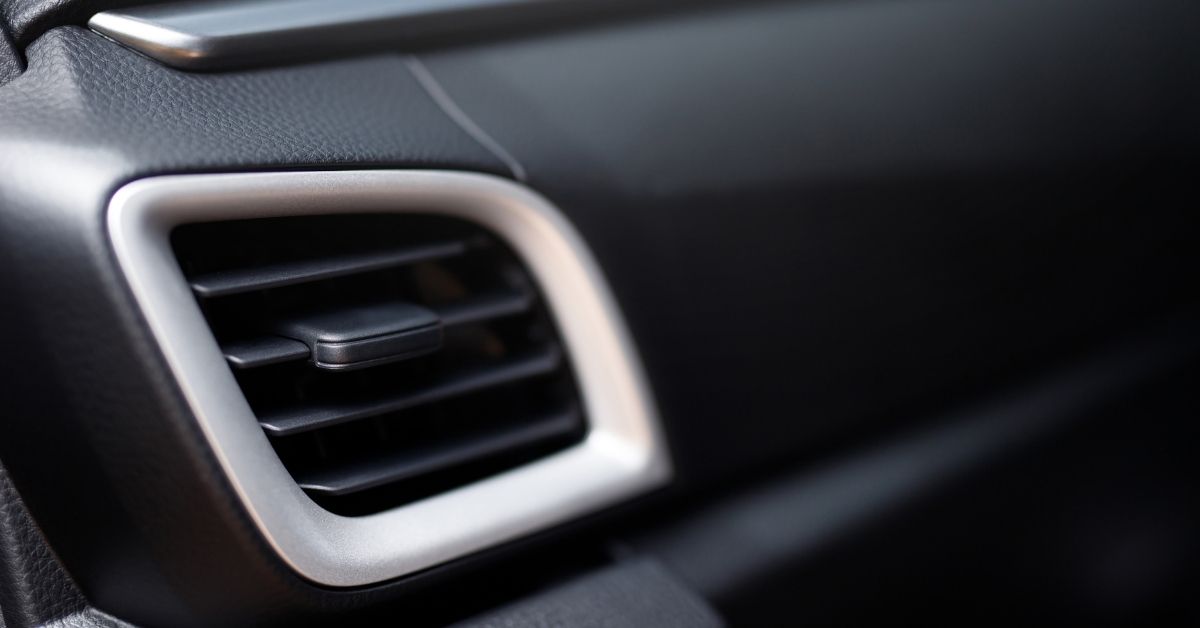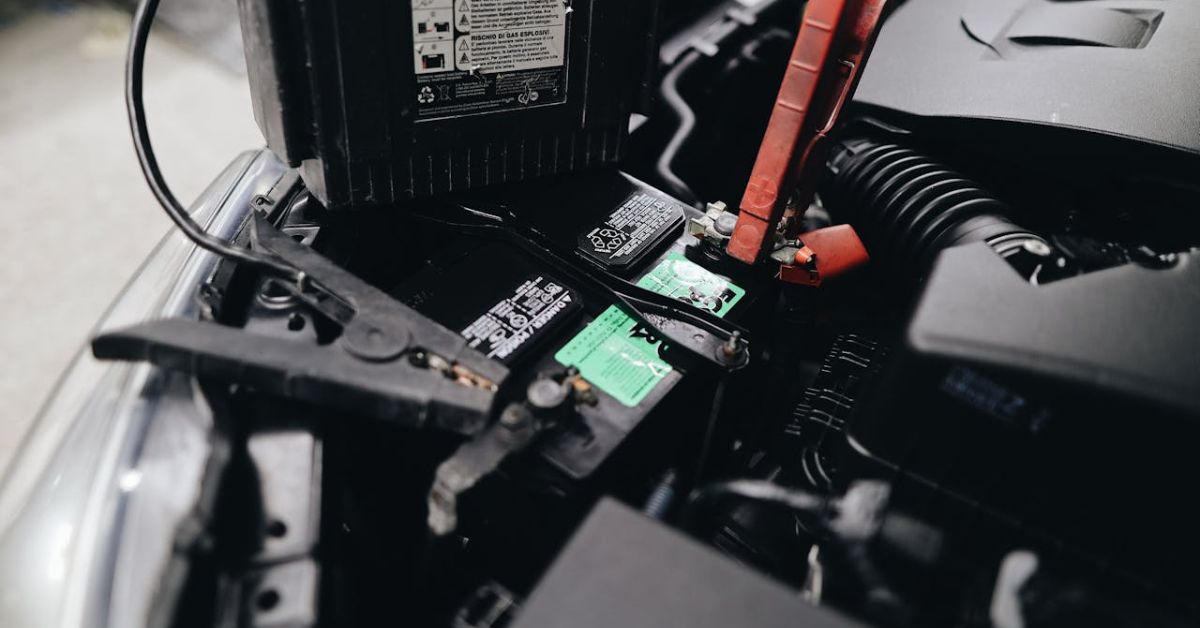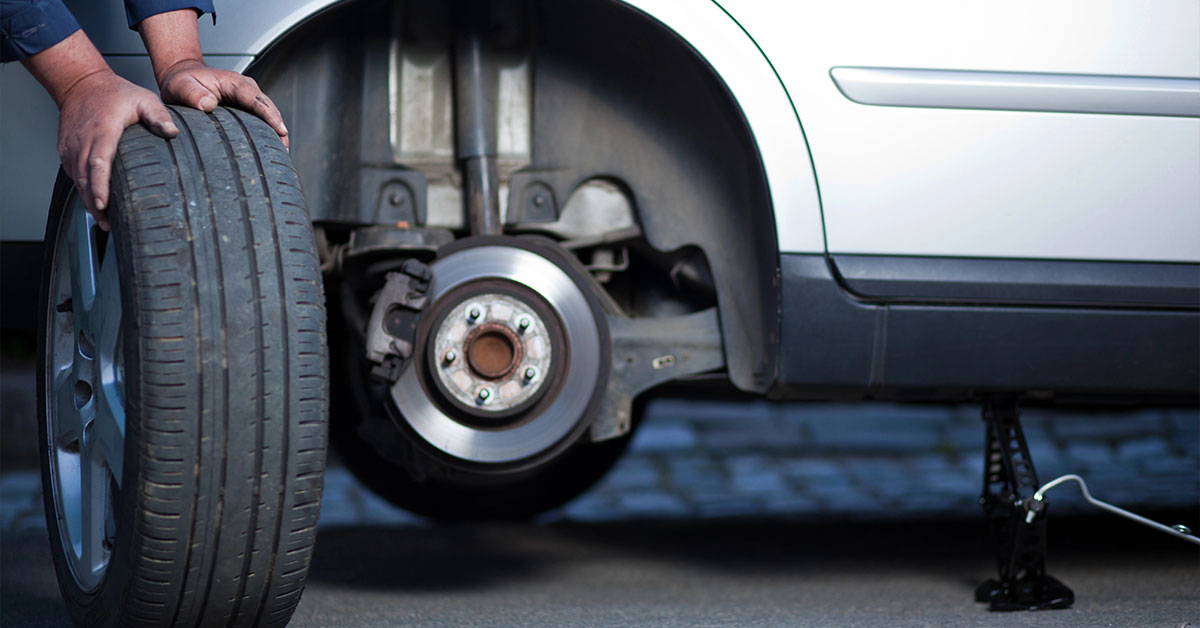In the heat of an Australian summer, a car without air conditioning can feel like a mobile sauna.
Your vehicle’s air conditioning (AC) system doesn’t just cool you down – it plays a big role in comfort, safety, and even your health.
This guide breaks down practical, honest tips to keep your AC system running cool and clean all year round.
Why Car Air Conditioning Maintenance Matters
Many drivers only think about their AC when the heat hits. But waiting until it fails is like waiting for your kettle to break mid-tea – frustrating and preventable.
Regular maintenance keeps your system efficient, saves money, and keeps the car interior fresh and breathable.

The Role of AC in Driver Comfort and Safety
Aside from keeping you cool, your AC helps prevent driver fatigue, which can affect focus and reaction times.
It also helps demist your windscreen in wet or humid conditions. A functioning AC system isn’t a luxury – it’s a key part of safe driving.
Health Risks of a Neglected AC System
An unmaintained system can collect mould, dust, and bacteria. That unpleasant smell when you switch it on?
That’s not just “old car” smell – it could be microbial growth blowing straight into your face. Dirty systems can trigger allergies and worsen asthma symptoms.
Signs Your Car’s Air Conditioning Needs Attention
Listen for strange noises. Feel for weak airflow. Smell for mustiness. If your AC takes ages to cool or starts blasting lukewarm air, it’s crying for help.
Don’t ignore the signs – your system is giving you clues before it gives up entirely.
Run Your AC Regularly – Even in Winter
Think of your AC system like your muscles. Use it or lose it. Running the system for a few minutes once a week, even in winter, keeps everything lubricated and in good shape.
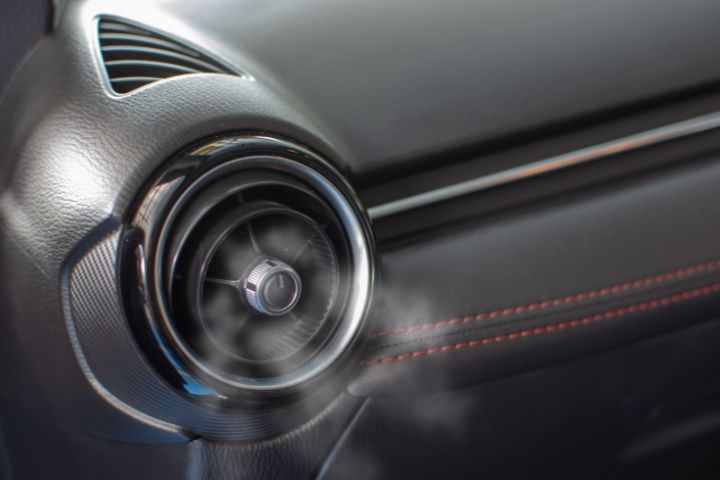
Preventing Seal and Compressor Wear
The AC system contains seals and a compressor that rely on consistent lubrication.
If left idle too long, the seals can dry out, and the compressor – the heart of the system – can struggle or fail. A short run each week helps avoid expensive repairs.
Maintaining Internal Pressure and Lubrication
The refrigerant in your system carries oil that keeps parts moving smoothly. Regular use helps keep internal pressure balanced and prevents leaks. It’s a simple habit that goes a long way.
Book Professional Servicing at Regular Intervals
Getting your AC system checked professionally isn’t just for fussy drivers – it’s smart upkeep. Even if things seem fine, hidden issues can build up quietly.
A routine service can catch problems before they hit your hip pocket.
Recommended Service Frequency
Most experts recommend servicing your AC every 12–24 months. If you drive frequently or use your AC daily, lean closer to the 12-month mark.
It’s quicker and cheaper to keep it in good shape than to revive a neglected system.
What Happens During a Professional AC Service?
A technician will check refrigerant levels, look for leaks, clean the system, inspect hoses, and test the compressor.
It’s like a health check for your car’s cooling system. You’ll get better performance and peace of mind.
Monitor and Maintain Refrigerant Levels
Refrigerant is the lifeblood of your AC. Too little, and your system will wheeze. Too much, and you might overload the compressor. It’s a delicate balance that shouldn’t be left to guesswork.

How Refrigerant Affects Cooling Efficiency
Low refrigerant means less cooling power and more strain on components. Your car might blow cool-ish air instead of icy blasts. Over time, this puts stress on the whole system and can shorten its life.
Signs of Low Refrigerant
Look out for lukewarm air, ice forming on AC pipes, or hissing sounds. These symptoms usually mean refrigerant is leaking or depleted. Best not to ignore them – they only get worse.
Why DIY Recharging Isn’t Always Safe
DIY kits can be tempting, but overfilling or using the wrong type of refrigerant can damage your system. Unless you know exactly what you’re doing, it’s better to let a certified technician handle it.
Clean or Replace Cabin Air Filters
Filters trap dust, pollen, and road grime before they reach your lungs. But like a full vacuum bag, they lose effectiveness over time. Clean filters mean clean air – and a more efficient system.
How Filters Impact Air Quality and Flow
Clogged filters reduce airflow and make your AC work harder. They also trap moisture, which can turn your vents into a breeding ground for bacteria. If you smell mildew, the filter might be the culprit.
When and How to Change the Filter
Check your owner’s manual, but a general rule is every 15,000–30,000 km. It’s often a simple task you can do yourself. Pop open the glovebox, slide out the old filter, insert the new one – done!
Keep the Vents and Interior System Clean
Clean vents mean better airflow and less funk. If you’ve ever had a blast of stale air hit you in the face, you’ll know why this matters.
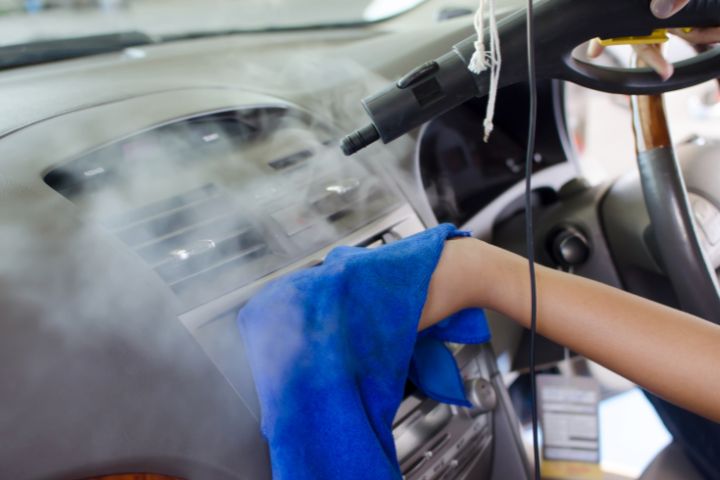
Dealing With Mould, Dust, and Odours
Use antibacterial sprays or foam cleaners made for car AC systems. These kill off bacteria and mould hiding deep in the ducts. Regular cleaning stops smells before they start.
Safe Products for Cleaning Vents
Look for automotive-grade cleaners. Avoid harsh household sprays – they can damage sensitive parts or leave behind strong chemical smells. Always follow the instructions on the label.
Use Your AC System Correctly
AC isn’t magic – it’s engineering. Using it the right way can improve performance and save energy.
Understanding Recirculation and Fresh Air Modes
Recirculation mode cools the air already in the cabin. It’s great for hot days. Fresh air mode pulls air from outside – handy for demisting or when it’s cooler outside. Switch depending on conditions.
Defogging and Dehumidifying Tips
Use your AC with the heater to clear foggy windows. Cold air removes moisture faster. Don’t rely on wiping windows – it smears and reduces visibility.
Why Pre-Cooling the Car Can Be Harmful
Letting your AC run with the car parked and engine idling might seem helpful, but it puts stress on the system and wastes fuel. Instead, open the doors for a minute, start driving, then crank the AC.
Protect Your Car From Excessive Heat
The sun is a silent AC killer. Constant exposure heats the cabin, making your system work harder every time you start the car. A few small habits can make a big difference.

Benefits of Parking in the Shade
Parking under a tree or in a covered area can lower cabin temperatures by up to 10°C. It’s not just cooler for you – it gives your AC a lighter load to deal with.
Using Sunshades and Window Tints
Sunshades reflect heat and UV rays, keeping your dashboard from turning into a stovetop. Legal window tinting also helps reduce heat buildup. These small tools help your AC last longer and work better.
Watch for Common AC Issues
Your AC won’t always scream for help. Sometimes, it whispers. Knowing what to look (and listen) for can help you catch issues early.
Strange Noises, Weak Airflow, and Warm Air
Clanking, hissing, or rattling sounds? Weak or inconsistent airflow? Warm air when the dial is set to cold? These are classic signs something’s wrong – usually with the compressor, fan, or refrigerant.
Electrical and Sensor Problems
Modern AC systems rely on sensors and relays. If your system acts erratically, it could be an electrical fault. These are trickier to spot, so you may need a scan tool or a technician to confirm the cause.
When to Seek Help From a Technician
Some fixes are simple. Others are not. Knowing when to hand over the wrench is key to avoiding bigger headaches.
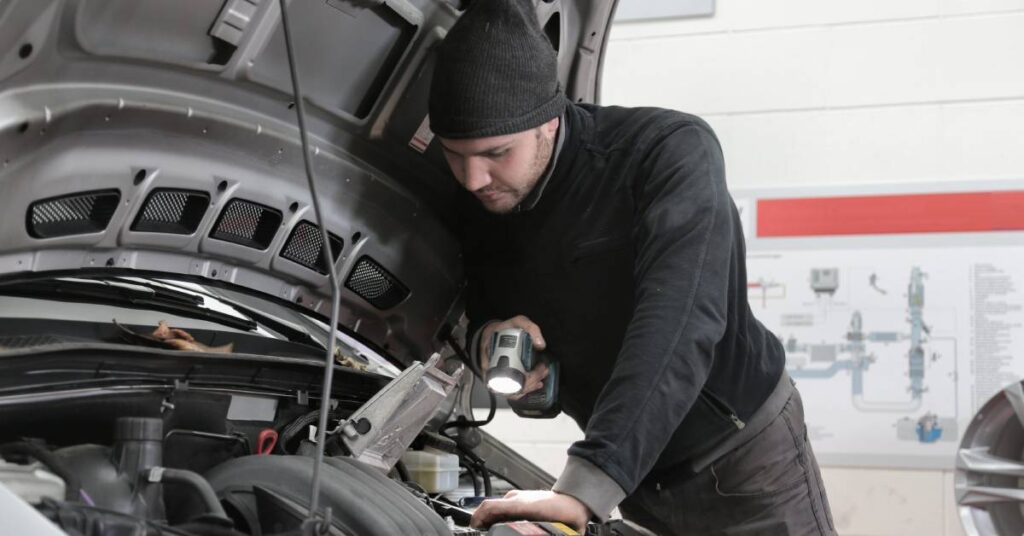
DIY vs. Professional Diagnosis
Cleaning filters and checking vents? Go for it. Recharging refrigerant or diagnosing leaks? Better left to a pro. Trying to fix something beyond your skill set can cause more harm than good.
Finding a Trusted Automotive AC Specialist
Ask mates for recommendations. Check online reviews. Look for businesses that specialise in car air conditioning, not just general servicing. A qualified tech can save you time, money, and sweat.
Conclusion: Stay Cool With Preventive Care
A little effort now saves a lot of discomfort later. Keeping your car’s AC healthy is about habits, not hassle.
Regular use, simple checks, and timely servicing can keep the system blowing ice-cold air for years to come.
Quick Recap of Maintenance Tips
- Run the AC weekly
- Change filters regularly
- Book a service every 12–24 months
- Clean vents and eliminate odours
- Use the system wisely and avoid bad habits
Long-Term Benefits of a Healthy AC System
A well-maintained AC system keeps you comfortable, healthy, and safe. It improves driving focus, prevents bigger repair bills, and adds value to your vehicle.
In short, treat it well, and it’ll return the favour, one cool breeze at a time.

